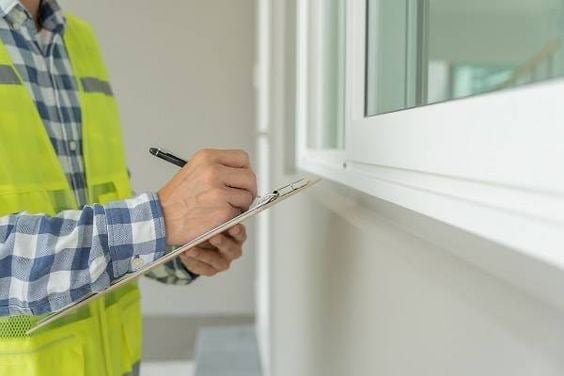The Importance of a Home Inspection: What Every Buyer Needs to Know
Discover why a home inspection is a crucial step in the home-buying process. This blog provides an in-depth look at what a home inspection entails, its importance in uncovering hidden issues, and how it can give you peace of mind as a buyer. Learn what to expect during an inspection, common misconceptions, and tips for choosing the right inspector to protect your investment.
8/25/20243 min read


Buying a home is one of the most significant investments you’ll ever make. While the excitement of finding the perfect property can be overwhelming, it’s crucial not to overlook one of the most important steps in the home-buying process: the home inspection. This vital step can save you from unexpected surprises and costly repairs down the road. In this blog, we’ll explore what a home inspection entails, why it’s essential, and how you can make the most of this crucial process.
What is a Home Inspection?
A home inspection is a thorough evaluation of a property’s condition, performed by a professional home inspector. During the inspection, the inspector examines various aspects of the home, including the structure, systems, and components. This typically includes:
Foundation and Structural Integrity: The inspector will check the foundation, walls, and structural components for any signs of damage or instability.
Roofing and Exterior: The roof, gutters, siding, and exterior surfaces are inspected for wear, leaks, and potential issues.
Plumbing Systems: The inspector will assess the plumbing, including pipes, water heaters, and fixtures, to ensure everything is functioning correctly.
Electrical Systems: Wiring, outlets, switches, and the electrical panel are examined to identify any safety concerns or needed repairs.
HVAC Systems: The heating, ventilation, and air conditioning systems are checked for proper operation and efficiency.
Interior Components: The inspector will evaluate doors, windows, floors, walls, ceilings, and other interior features for condition and functionality.
Attic and Basement: These areas are checked for insulation, ventilation, moisture issues, and potential structural concerns.
Why is a Home Inspection Important?
Uncover Hidden Issues: A home might look perfect on the surface, but a thorough inspection can reveal hidden problems that aren’t immediately visible. From foundation cracks to faulty wiring, these issues could lead to significant expenses if left unchecked.
Negotiation Leverage: If the inspection uncovers problems, you can use this information to negotiate with the seller. This might involve asking for repairs, a reduction in the purchase price, or even credits at closing to cover future repairs.
Peace of Mind: Buying a home is a big commitment, and a home inspection provides peace of mind by giving you a clear picture of the property’s condition. Knowing that your new home is in good shape (or understanding what needs attention) allows you to move forward with confidence.
Budgeting for Future Repairs: Even if the inspection reveals minor issues that don’t affect the purchase decision, it helps you plan for future repairs and maintenance. Being aware of potential costs can help you budget effectively and avoid unexpected financial strain.
What to Expect During a Home Inspection
The inspection process typically takes 2-4 hours, depending on the size and condition of the property. As the buyer, you’re encouraged to attend the inspection. This gives you the opportunity to ask questions, learn about the home’s systems, and see any issues firsthand.
After the inspection, the inspector will provide a detailed report outlining their findings. This report will include descriptions of any issues discovered, along with photos and recommendations for repairs or further evaluation.
Common Misconceptions About Home Inspections
“The Home Inspection is a Pass/Fail Test”: A home inspection isn’t about passing or failing. It’s an objective assessment of the property’s condition. The goal is to provide you with information so you can make an informed decision.
“The Inspector Will Find Everything”: While home inspectors are thorough, they can’t see through walls or predict future problems. They inspect what is visible and accessible, but some issues may go unnoticed.
“A New Home Doesn’t Need an Inspection”: Even newly built homes can have issues, such as construction defects or incomplete work. An inspection ensures that everything is up to standard before you move in.
How to Choose a Home Inspector
Choosing a qualified, reputable home inspector is crucial. Here are some tips to help you make the right choice:
Check Credentials: Look for inspectors who are licensed, certified, and experienced in home inspections.
Read Reviews: Online reviews and testimonials can provide insight into the inspector’s professionalism and thoroughness.
Ask for Sample Reports: Reviewing a sample report can help you understand the level of detail the inspector provides.
Get Recommendations: Ask your real estate agent, friends, or family for referrals to trusted home inspectors.
Conclusion
A home inspection is a vital step in the home-buying process that should never be skipped. It protects your investment, provides peace of mind, and ensures you’re fully informed about the property’s condition. By understanding the importance of a home inspection and choosing the right inspector, you can confidently move forward in your journey to homeownership, knowing that your new home is safe, sound, and ready for you to make it your own.


